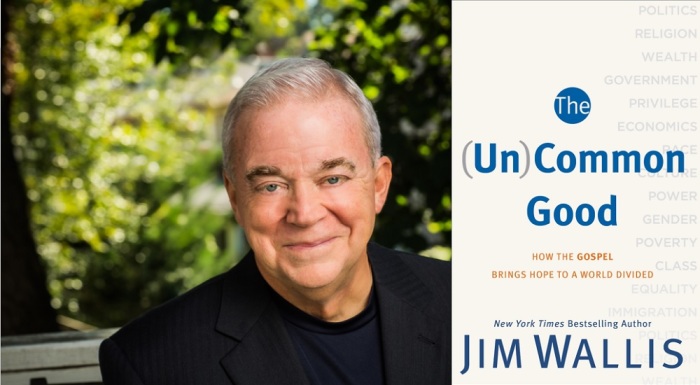These 3 Things, Not Government, Will Eliminate Poverty, Social Justice Advocate Jim Wallis Says
What does Jim Wallis believe will end poverty?
Work, education and family.

"If you think about it those are not liberal or conservative ideas," Wallis, president of the Christian social justice advocacy group Sojourners, told The Christian Post. "They ought to be things that we can come together on."
The theme of estranged groups uniting to positively affect their country is the theme of Wallis' recently released Uncommon Good: How the Gospel Brings Hope to a World Divided, an updated version of his 2013 book On God's Side: What Religion Forgets and Politics Hasn't Learned about Serving the Common Good.
Wallis, 66, who was raised in Detroit, Michigan, reminisced about when the once-great American city seemed invincible.
"I remember my father telling [my siblings and me], 'We live in the best city in the best state in the best country in the world,'" recounted Wallis. "At that time Detroit was fourth largest city in the country behind New York, LA and Chicago."
Wallis remembers a childhood where everyone in his church was employed and how they took for granted the benefits of a strong union, a future pension, and the strong likelihood they would maintain their current job for the rest of their life. (Later, Wallis learned that his stable reality was not shared by his African-American neighbors, a discovery which set in motion his challenging of the narrative in which he had been raised.)
As Wallis looks back on the struggling city, the activist points to one of the remedies in his book: a "social covenant" which would engender "human dignity, the common good, and stewardship."
"I think watching Detroit … we really have lost this notion of being things for each other as well. It's all me and in the culture the selfie camera shot becomes the archetype. It's a 'me culture,' a spiritual battle of the 'I and the me,'" said Wallis. "… How do we talk about not my party, not my bubble, not my class, not my cultural sector, even my country, but how do we talk about all being for all?"
Wallis described the fall of Detroit as "people fighting for survival and not people fighting each other."
"The economics of it is the car companies saw the short term profits of big SUVS and we missed the opportunity to lead on the kind of cars that could have helped pay the way to the future if you will, low gas, energy saving cars, and we just went in the short term profits," Wallis said.
One lesson from his hometown?
"Detroit shows that the government isn't enough," said Wallis. "The book talks about how we've got to talk about the common good as societal ethic which means our congregations, our neighborhood organizations, our non-profits, the private sector … and government."
The Sojourners president believes that liberals and conservatives both have a part to play in improving the common good.
"The best conservative idea is the idea of personality responsibility. I've never seen a problem solved or poverty overcome or the things I care about without personal responsibly as a part of the solution," said Wallis. "The best liberal idea is social responsibility: taking care of not just ourselves but taking care of each other."
Often, Wallis, a father of two young sons says, this begins at home, where "the common good really takes place."
"More and more as a parent of a 15-year-old and 11-year-old, I feel more and more that parenting is essential to everything. I've done gang truce work with Crips and Blood, Vice Lords and Latin Kings, I've hardly ever had a gang kid whose come from a healthy, strong, loving family environment. Period."
"I believe in safety nets and I believe that a good society takes care of those that are vulnerable and I've been fighting with the Salvation Army and the National Association of Evangelicals and the Bishops and others to defend things like food stamps, but those things don't end poverty, they help people survive, or they help people from falling even down further in poverty. To overcome poverty you need work and economic activity, innovation, education."




























